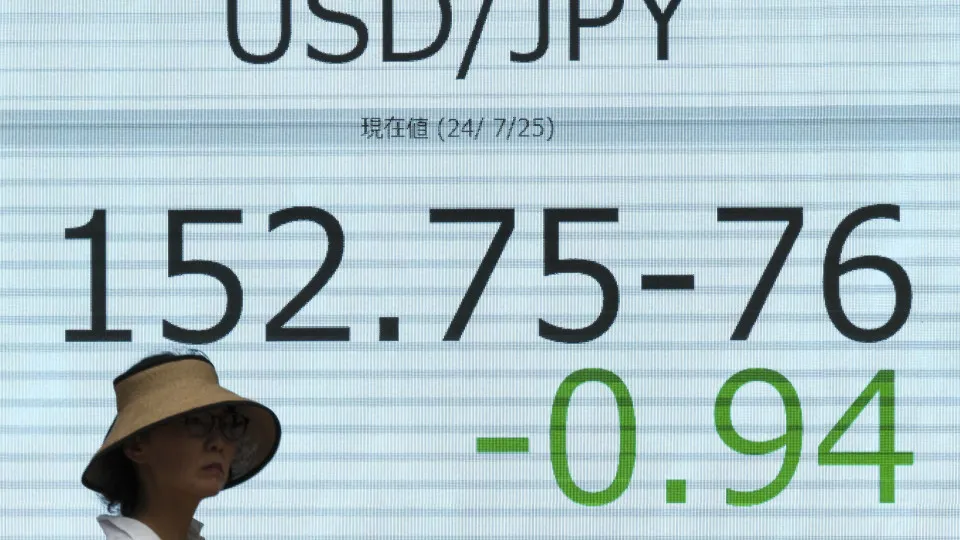
Japan is closely monitoring the currency “with a high sense of urgency,” stated government spokesperson Minoru Kihara during a daily press conference today, according to the Japanese news agency Kyodo.
The Tokyo Stock Exchange traded the Japanese yen at approximately 157 yen per dollar today, marking the lowest level since January.
On Wednesday, Japanese Finance Minister Satsuki Katayama expressed the government’s concern over the yen’s weakness, which hit a low against the euro the previous day, raising expectations of a possible intervention by authorities to curb sharp movements.
The yen dropped to 180 units per euro during New York stock market negotiations on Monday, the lowest against the euro since its introduction in 1999, and fluctuated in the high 179-unit range during the Tokyo session.
Katayama emphasized the importance of currency stability reflecting economic fundamentals, with similar comments made in the past before Japanese financial authorities intervened in the foreign exchange market to halt abrupt movements of the yen.
Katayama’s comments on Wednesday followed the release of Japan’s Gross Domestic Product (GDP) data, showing a contraction of 0.4% between July and September, the first reduction in six quarters, leading the minister to justify “sufficient reasons to implement stimulus and budgetary measures,” supporting the stance of Prime Minister Sanae Takaichi, who took office in October.
The selling operations of the Japanese currency have intensified due to concerns over Japan’s fiscal health and the impact of the mega stimulus package being finalized by Takaichi’s administration.
Meanwhile, expected rate increases from the Bank of Japan (BoJ) remain on hold as the central bank assesses the impact of U.S. tariffs and the economic policy of the new Japanese administration, contributing to the yen’s weakness.
Junko Koeda, an economist on the BoJ’s policy board, insisted today on the necessity for the central bank to proceed with planned reference rate increases, which remain at 0.5%, to return the world’s fourth-largest economy to a “state of balance,” according to Kyodo.
The Finance Minister held a meeting on Wednesday with BoJ Governor Kazuo Ueda, although, according to the Nikkei publication citing close sources, the officials did not discuss the yen’s situation in detail, contributing to the currency’s sell-off.
The central bank has shown favor towards increasing borrowing costs as part of efforts to normalize monetary policy, if the economy and prices progress according to established targets, but Ueda warned that the real impact of tariffs on the Japanese economy has not yet fully materialized, prompting the BoJ to adopt a cautious stance.
This factor was compounded by Takaichi’s rise to power, known for her moderate fiscal stance and advocate of expansionary monetary policy, critical of the rate hike path initiated by the BoJ in March 2024.
The Japanese central bank last raised interest rates in January, but the “normalization” cycle was interrupted following Donald Trump’s return to the White House and the aggressive tariff policy Washington has pursued since.




